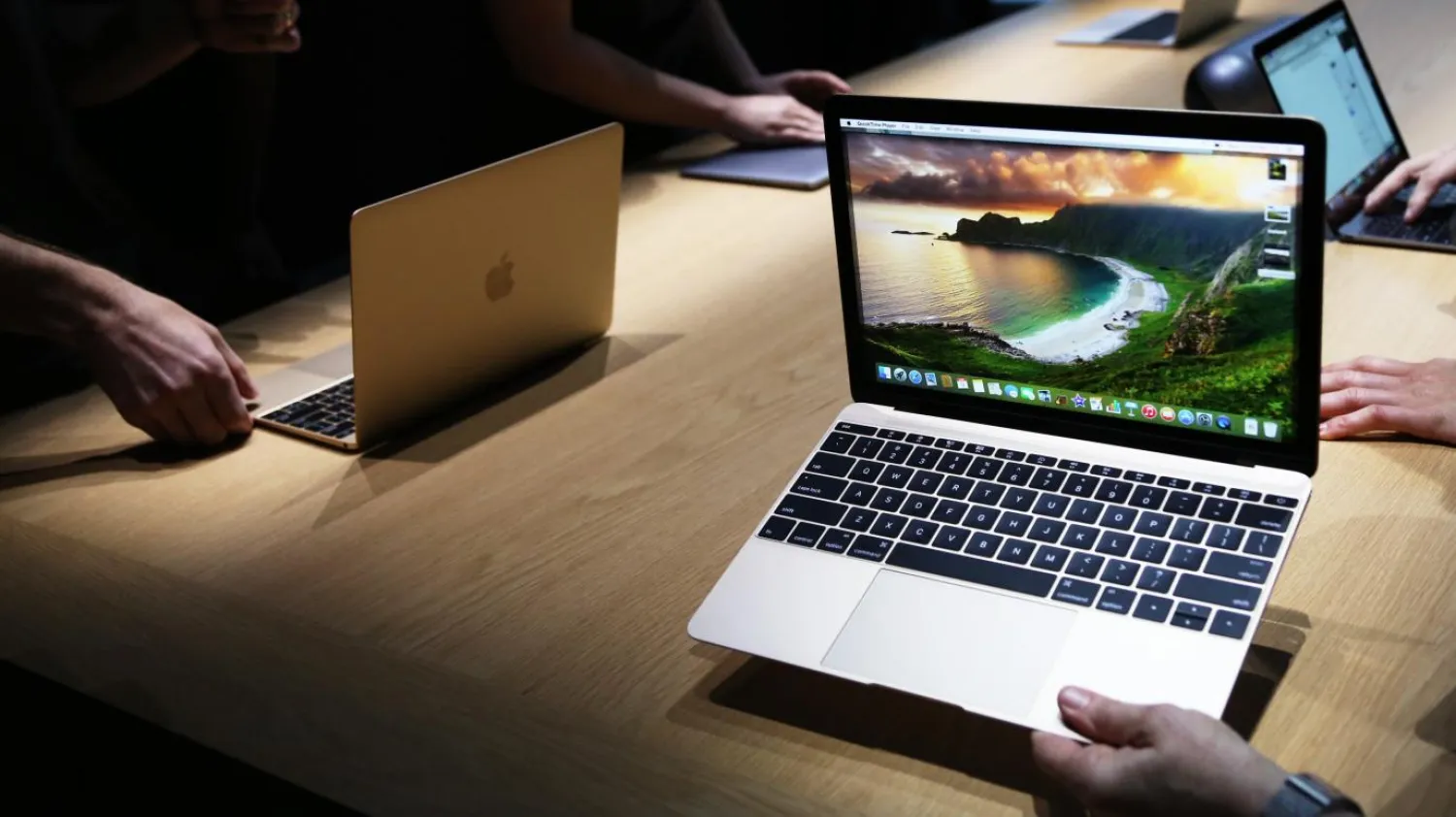Apple killed off the standard MacBook and entry-level MacBook Pro this week, theoretically simplifying its line of laptops to just two models, the MacBook Air and MacBook Pro.
But if you’re in the market for a new Apple laptop—perhaps you’re gearing up to go back to college, or your old one finally gave out—you have a tough decision ahead of you. There’s no clear choice as to which laptop is best, but here’s a quick rundown on the options available right now, and what might be best for you:
The MacBook Air
Pros: Light
Cons: Not so powerful
Starts at: $1,099
If your primary concern is weight, then the Air might be the Mac laptop for you. But even then, it’s only about 0.25 pounds lighter than a 13-inch MacBookPro (although about 1.3 pounds lighter than a 15-inch Pro).
Really, the current MacBook Air is the Apple laptop to get if you’ve had Macs for years and you want a no-hassle upgrade. If you’re after something that’ll let you answer emails, browse the web, watch movies, do some office work, and perhaps edit a photo or two, this is the machine for you.
You can customize the Air to have a sizable 1 TB hard drive, and 16 GB of memory, but you’re stuck with a pretty standard 1.6 GHz dual-core Intel Core i5 processor, and an underwhelming graphics card. This maxed-out version of the MacBook Air will run you $1,899, however.
The MacBook Pro
Pros: 15-inch screen option, more customization options
Cons: Heavier, more expensive
Starts at: $1,299
If you can find another $200 to spend on a MacBook and are looking for more power, you should go for the 13-inch MacBook Pro. You’ll get a slightly better graphics card and 1.4 GHz quad-core Intel Core i5 processor, the Touch Bar screen (which for some is not necessarily a bonus), and a somewhat brighter, more colorful display.
The MacBook Pro also has far more customization options that can turn the laptop into a powerful productivity machine. On the 13-inch model, you can have up to 16 GB of memory, 2 TB of storage, and a 1.7 GHz quad-core Intel Core i7 processor. On the larger 15-inch model, you get two extra USB-C ports, the option to choose proper graphics cards, 32 GB of memory, and 4 TB of storage. (The jam-packed version of the 15-inch Pro will set you back $5,149.)
A MacBook Pro shouldn’t have any problem handling whatever you’re going to throw at it, and if you have the cash and desire to customize your machine, this is the Apple laptop to get right now.
The iPad Pro
Pros: Extremely light, touchscreen, cheaper
Cons: It’s… not entirely a computer
Starts at: $799 (or $978 with the keyboard case)
A more abstract way of answering the Mac question right now is to just ignore it and buy an iPad Pro. It’s what I personally did a few months ago, and I love it. There’s a bit of a learning curve and you need to download a few apps to make it feel more like a computer (and proper mouse support would be nice), but if you’re on the move a lot, it’s a joy to carry around with you.
The 11-inch model starts at $799, comes with 64 GB of storage, and weighs a hair above 1 pound. Apple’s own Smart Keyboard Folio case is comfortable to type on, and with the advancements coming to the iPad’s software in the fall, there’s not too much separating it from its beefier Mac cousins, if you’re just interested in doing the same sorts of things you might use a MacBook Air for.
But then again, the iPad is far more fiddly to use than a regular laptop, so this won’t be the option for everyone.
Just wait
If you don’t need a new computer right this moment, my advice would be to wait. Apple traditionally holds events in September (and occasionally October) to show off new products. It’s part of the reason it runs a back-to-school promotion on its laptops in the summer—this year, students can save $100 off the price of a new MacBook, and will get a pair of Beats headphones thrown in as well—as the company is trying to shift old inventory before the new products come in. There have already been rumors that Apple is planning to refresh or redesign its MacBooks in the near future, potentially doing away with the keyboard design that has given users nothing but problems since it was first introduced in 2015. And that’s another reason to potentially stay away from the current crop of MacBooks: They all still seem to be plagued by the faulty key design, which can lead to keys getting stuck, not working, or repeating letters. Which isn’t particularly helpful if you’re trying to turn a paper in on a deadline.
(Quartz)
(Tribune Media)









